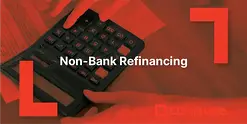Documents You'll Need to Refinance Your Home Loan
 By
Trent Bradley
·
14 minute read
By
Trent Bradley
·
14 minute read

One of the most common causes of delays in the refinancing process is incomplete or missing documentation. New Zealand lenders require extensive paperwork to assess your application, verify your income and assets, and confirm your identity. Understanding exactly what documents you'll need and having them ready before you apply can dramatically speed up your refinancing and reduce stress.
Table of Contents
- Essential Documents for All Borrowers
- Additional Documents for Specific Situations
- Tips for Organizing Your Documentation
- Common Documentation Mistakes to Avoid
- Special Guidance for Complex Situations
- How Lenders Use Your Documentation
- Working with Your Mortgage Broker or Adviser
- The Payoff of Thorough Preparation
Key Takeaways
- Essential documents for all refinancing applications include proof of identity (passport or driver's license), 3 months pay slips plus employer confirmation letter, 3-6 months comprehensive bank statements for ALL accounts showing complete transactions, current mortgage details and property information, and complete asset/liability schedules including all credit cards, loans, and debts
- Self-employed borrowers require substantially more documentation: 2 years financial statements (profit/loss, balance sheets, cash flow), 2 years personal and business tax returns with IRD notices of assessment, GST registration and recent returns, business bank statements (6+ months), and accountant confirmation letter—applications typically take 2-4 weeks longer than PAYE employees
- Organize documents digitally in clearly labeled folders by category (identification, income, bank statements, property, assets/liabilities) using descriptive filenames like "Pay_Slip_March_2025" rather than generic names—proper organization dramatically accelerates lender assessment
- Common documentation mistakes causing delays include submitting outdated documents (pay slips over 3 months old), providing statements for only some accounts while hiding others, illegible or incomplete scans missing pages, inconsistent information between documents, and missing required signatures or dates
- Bank statements reveal spending patterns, financial discipline, undisclosed debts, and serviceability—lenders scrutinize for regular salary deposits, absence of overdrafts, disclosed debt consistency, and concerning patterns like gambling or excessive discretionary spending
- Special situations require additional documentation: recent separation/divorce needs property settlement agreements and ex-partner consent, child support income requires court orders and 3 months bank statement evidence, credit issues need statutory declarations explaining circumstances and creditor confirmation of resolution
This comprehensive guide provides a complete checklist of documents required for refinancing, explains why each document is needed, offers special guidance for self-employed borrowers and other unique situations, and provides practical tips for organizing and presenting your documentation effectively.
Essential Documents for All Borrowers
Regardless of your employment status or situation, certain core documents are required for every refinancing application in New Zealand.
Proof of Identity
Lenders must verify your identity to comply with anti-money laundering regulations and confirm you are who you claim to be. You'll need at least one form of primary photographic identification, typically either a current New Zealand passport or a New Zealand driver's license.
Some lenders also request secondary identification such as a birth certificate, citizenship certificate, or another form of official identification. If you're not a New Zealand citizen or resident, you'll need to provide your visa documentation showing you have the right to live and work in New Zealand.
Ensure all identification is current and not expired. If your driver's license expires soon, consider renewing it before applying to avoid complications during the assessment process.
Proof of Income for Employed Borrowers
For those in traditional employment, you'll need to provide recent pay slips covering the last three months, though some lenders request up to six months. These pay slips must be official documents from your employer showing your gross and net income, tax deductions, KiwiSaver contributions, and any other deductions.
You'll also need a letter from your employer confirming your employment status, including your job title, employment start date, whether you're permanent or fixed-term, your annual salary or hourly rate, and any regular allowances or bonuses you receive. Some lenders provide a standard template for this employment letter, while others accept a letter on company letterhead signed by your employer.
If you've changed jobs recently, lenders might request information about your previous employment as well to demonstrate income stability. Generally, being in your current role for at least three to six months strengthens your application, though this isn't an absolute requirement.
Bank Statements
Comprehensive bank statements are crucial for lenders to assess your spending patterns, verify your income, confirm you can service the loan, and identify any financial commitments not disclosed elsewhere. You'll need statements for all accounts where income is deposited or expenses are paid, typically covering three to six months.
These statements must show all transactions, not just summaries. Lenders want to see where your money comes from and where it goes. They're looking for regular salary deposits, evidence of financial discipline and savings behavior, confirmation that you're not regularly overdrawn, and disclosure of any debts or commitments not mentioned in your application.
Some lenders accept electronically downloaded statements, while others prefer official statements directly from your bank. Check with your lender about their specific requirements to avoid needing to resubmit documents.
Details of Assets and Liabilities
You'll need to provide comprehensive information about everything you own and everything you owe. For assets, this includes your property values, vehicle values, investment accounts and KiwiSaver balances, savings accounts, and any other significant assets.
For liabilities, provide full details of all credit cards including limits and current balances, personal loans with remaining balances and monthly payments, car loans or hire purchase agreements, student loans, and any other debts including informal loans from family or friends.
Lenders will verify major debts through credit checks, but disclosing everything upfront demonstrates honesty and allows accurate serviceability assessment. Failing to disclose debts that are later discovered can result in your application being declined or approved loan offers being withdrawn.
Current Mortgage Information
Provide details about your existing mortgage including your current lender's name, your loan account number, your current interest rate, your remaining loan balance, your current monthly payment amount, and details of whether you're on fixed or floating rates and when any fixed terms expire.
Your most recent mortgage statement provides most of this information. If you're exiting a fixed term early, you'll also need a break fee calculation from your current lender, which your lawyer typically obtains on your behalf.
Property Information
Lenders need comprehensive information about the property you're refinancing. This includes your property address and legal description, when you purchased the property and for how much, your estimate of its current market value, details of any recent renovations or improvements, and information about the property's condition.
You should also disclose any known issues with the property such as weathertightness problems, earthquake damage, or structural concerns. Honesty about property issues is crucial, as they'll be discovered during valuation and undisclosed problems can derail your application.
Additional Documents for Specific Situations
Depending on your circumstances, you may need to provide additional documentation beyond the standard requirements.
Self-Employed Borrowers
Self-employed applicants face more stringent documentation requirements because their income can be more variable and requires closer verification. You'll need to provide financial statements for your business, typically for the last two years. These should include profit and loss statements, balance sheets, and cash flow statements.
Tax returns for the last two years are essential, including your personal income tax returns and business tax returns if you operate through a company or partnership. Lenders want to see IR3 or IR4 forms and notices of assessment from the Inland Revenue Department.
Proof of GST registration and recent GST returns helps demonstrate your business is legitimate and trading actively. A letter from your accountant confirming your income and business financial position adds credibility to your application. Some lenders also request business bank statements covering six months or more to verify business cash flow and income consistency.
If you've been self-employed for less than two years, you may face additional scrutiny or might need to provide evidence of previous employment and income to demonstrate overall earning capacity and financial stability.
Multiple Income Sources
If you have income from multiple sources such as primary employment plus rental income, investment income, or side businesses, you'll need documentation for each income stream. For rental properties, provide tenancy agreements showing rental amounts, rates notices and insurance documents for rental properties, and property statements showing rental income and expenses.
For investment income, provide statements from investment accounts or managed funds and documentation of dividends or interest received. Lenders typically only count a portion of rental income toward serviceability calculations, usually around seventy-five percent, to account for vacancy periods and maintenance costs.
Recently Separated or Divorced
If you've recently separated or divorced and are refinancing to remove your ex-partner from the mortgage, you'll need your separation agreement or divorce documents, property settlement agreement showing how the property has been divided, evidence that you can service the loan on your income alone, and proof that your ex-partner agrees to be removed from the mortgage.
This situation often requires additional time and documentation because lenders need to ensure the property settlement is finalized and legally binding, and that you can genuinely afford the mortgage independently.
Receiving Child Support or Spousal Maintenance
If child support or spousal maintenance forms part of your income, you'll need court orders or agreements specifying payment amounts, evidence that payments are being received regularly, typically through bank statements showing deposits, and confirmation of how long these payments will continue.
Lenders typically only count this income if it will continue for at least three years, as it needs to be reasonably stable and ongoing to be included in serviceability calculations.
Recent Credit Issues
If you have previous defaults, judgments, or credit issues on your record, prepare explanations and evidence showing these are resolved. This includes statutory declarations explaining what happened, evidence that debts have been paid or settled, letters from creditors confirming matters are resolved, and demonstration of improved financial management since the issues occurred.
Being upfront about past credit problems and providing clear documentation showing they're behind you gives you the best chance of approval despite these issues.
Non-Resident or Temporary Visa Holders
If you're not a New Zealand citizen or permanent resident, additional documentation is required including your current visa showing you have the right to live and work in New Zealand, evidence of how long you've been in New Zealand, proof of stable income and employment in New Zealand, and potentially evidence of assets or income in your home country.
Lenders have different policies about lending to temporary visa holders, with some requiring you to have at least two years remaining on your visa or be on a pathway to residence.
Tips for Organizing Your Documentation
Proper organization of your documents makes the process smoother for everyone involved and demonstrates your professionalism and attention to detail.
Create Digital Copies
Scan or photograph all documents and save them in a dedicated digital folder. Use clear, descriptive file names like "Pay_Slip_March_2025" or "Bank_Statement_ASB_Jan_2025" rather than generic names like "Document1" or "Scan0042". This makes it easy for lenders to find specific documents quickly.
Ensure scans are clear and legible. Blurry or incomplete documents will need to be resubmitted, causing delays. Most smartphones now have document scanning apps that automatically enhance images for better quality.
Organize by Category
Create subfolders for different document types such as identification, income verification, bank statements, property documents, and assets and liabilities. This organization makes it easy to find specific documents when lenders request them and demonstrates you're organized and thorough.
Keep Everything Current
Ensure all documents are recent and relevant. Pay slips should be from the last few months, bank statements should be current, and identification should not be expired. If documents become outdated during the application process, be prepared to provide updated versions.
Provide Complete Documents
Don't submit partial documents hoping to fill in gaps later. If a bank statement covers multiple pages, include all pages even if some seem irrelevant. Lenders need complete documentation to properly assess your application, and partial documents cause delays while they request the missing portions.
Highlight Key Information
If documents are lengthy, consider using sticky notes or annotations to highlight key information lenders need to see, such as your name, income amounts, or account balances. This courtesy can speed up the assessment process as lenders can quickly find relevant details.
Prepare Explanations for Irregularities
If your documents show anything unusual such as irregular income, large deposits or withdrawals, gaps in employment, or unexplained transactions, prepare brief written explanations proactively. Being upfront about irregularities and explaining them clearly prevents lenders from making negative assumptions or requesting extensive additional information.
Common Documentation Mistakes to Avoid
Several common errors can delay or derail your refinancing application. Avoiding these pitfalls keeps your application moving smoothly.
Submitting Outdated Documents
Documents quickly become outdated. If you gathered pay slips three months ago and are only now submitting your application, those pay slips are probably too old. Always gather fresh documents immediately before applying or be prepared to update documents if the application process takes longer than expected.
Providing Documents for Only Some Accounts
Disclose and provide statements for all bank accounts, credit cards, and loans. Trying to hide accounts or debts never works—lenders conduct credit checks that reveal undisclosed debts, and discovering hidden information damages your credibility and can result in application decline.
Illegible or Incomplete Scans
Poor-quality scans that are blurry, cut off, or missing pages require resubmission. Take time to ensure all scans are clear, complete, and properly oriented. If you're photographing documents with your phone, use good lighting and hold the camera steady.
Inconsistent Information
Ensure information is consistent across all documents. If your employment letter states your salary is eighty thousand dollars annually but your pay slips suggest seventy thousand, lenders will question the discrepancy. Such inconsistencies raise red flags and require extensive explanation or clarification.
Missing Signatures or Dates
Some documents require signatures or dates to be valid. Employment letters should be signed and dated, statutory declarations require witnessing, and some forms need your signature. Double-check that all required signatures and dates are present before submitting.
Failing to Explain Unusual Circumstances
If you have unusual income patterns, employment gaps, credit issues, or other irregularities in your financial history, don't hope lenders won't notice. Proactively explain these circumstances with supporting documentation. Lenders appreciate transparency and thorough explanations.
Special Guidance for Complex Situations
Some borrowers face unique documentation challenges requiring additional preparation.
Recent Immigrants to New Zealand
If you've recently moved to New Zealand, you may lack extensive local financial history. Gather employment contracts showing your position and salary, reference letters from previous employers in your home country, evidence of assets or savings you brought to New Zealand, and credit reports from your home country if available.
Lenders understand that recent arrivals lack local credit history but need assurance of your financial stability and ability to service the loan.
Career Changers or Recent Graduates
If you've recently changed careers or just graduated and started working, emphasize the stability and earning potential of your new role. Provide education certificates or professional qualifications demonstrating your credentials, employment contracts showing your permanent status and salary, and explanations of your career path and why this change represents positive progression.
Career changes don't automatically disqualify you, but lenders need confidence that your new income is stable and sustainable.
Business Owners with Complex Structures
If you own your business through a company structure or have multiple business entities, documentation becomes more complex. Provide company financial statements for all entities, shareholder agreements or trust deeds if relevant, documentation of any business debts or obligations, and clear explanation of how you draw income from the business.
Consider having your accountant prepare a summary letter explaining your business structure and income to help lenders understand your situation more easily.
Portfolio Property Investors
If you own multiple investment properties, provide documentation for all properties including rental income for each, property expenses and management costs, and any existing mortgages on investment properties.
Lenders need to assess your entire property portfolio when determining whether you can service additional borrowing, so complete disclosure of all properties is essential.
How Lenders Use Your Documentation
Understanding what lenders look for in your documents helps you present information effectively.
Income Verification
Lenders verify that your stated income is accurate and stable. They look for consistent pay amounts across multiple pay slips, income that matches what you declared on your application, evidence of permanent rather than casual employment, and absence of unusual income variations requiring explanation.
They calculate your annual income conservatively, often excluding irregular bonuses or overtime unless clearly documented as regular and reliable.
Expense and Commitment Assessment
Through your bank statements, lenders assess your spending patterns and financial commitments. They look for evidence of financial discipline and living within your means, confirmation that declared debts match what appears in your statements, absence of gambling or other high-risk spending patterns, and proof that you're meeting existing financial obligations reliably.
They also apply standardized expense benchmarks to ensure you have sufficient income to cover both living expenses and mortgage repayments.
Asset and Equity Verification
Property valuations confirm your home's value and therefore your equity position. Lenders verify that your loan-to-value ratio falls within their lending criteria, confirm you have genuine equity rather than being overleveraged, and assess whether your property is suitable security for the loan amount.
Other assets provide additional security and demonstrate overall financial strength, though lenders primarily focus on the property securing the mortgage.
Character and Reliability Assessment
Your documentation also helps lenders assess your character and reliability. Complete, accurate, and well-organized documentation suggests you're responsible and thorough. Timely provision of requested documents demonstrates you're serious and committed. Honest disclosure of issues or problems shows integrity and trustworthiness.
These intangible factors can influence lending decisions, particularly for borderline applications where lenders need confidence that you'll be a reliable borrower.
Working with Your Mortgage Broker or Adviser
If you're using a mortgage broker, they'll guide you through documentation requirements and help ensure you provide everything needed.
Let Them Review Before Submission
Before submitting your application, have your broker review all documentation. They can identify any missing items, spot potential issues or inconsistencies requiring explanation, suggest additional supporting documents that strengthen your application, and ensure everything is properly organized and presented.
This preliminary review can prevent delays caused by incomplete applications or documentation issues discovered during lender assessment.
Ask Questions About Requirements
Don't hesitate to ask your broker why specific documents are needed or how lenders will use certain information. Understanding the purpose behind documentation requirements helps you provide better information and appropriate context.
If you're unsure whether you have the right documents or if something you have will meet requirements, ask before assuming. It's better to clarify upfront than discover issues during the application process.
Discuss Unusual Circumstances Early
If you have unique circumstances, complex financial situations, or potential application challenges, discuss these with your broker before gathering documents. They can advise on what additional documentation might help and how to present your situation most favorably.
Early discussion of challenges allows your broker to position your application strategically or suggest alternative lenders more suited to your circumstances.
The Payoff of Thorough Preparation
While gathering and organizing all required documentation takes time and effort, thorough preparation pays significant dividends. Applications with complete documentation process faster, typically saving weeks compared to applications requiring multiple rounds of document requests. Complete applications have higher approval rates because lenders can properly assess all aspects of your situation.
You'll experience less stress and fewer urgent requests for additional information. And perhaps most importantly, you demonstrate professionalism that may influence lender decisions positively, particularly for borderline applications.
At Luminate Financial Group, we provide our clients with comprehensive documentation checklists customized to their specific circumstances. We review all documents before submission to ensure completeness and accuracy, explain why each document is needed and how lenders will use it, coordinate with you to gather any missing items efficiently, and present your application to lenders in the most favorable light possible.
Our experience with hundreds of refinancing applications means we know exactly what documentation each lender requires and how to present it effectively. We anticipate potential questions or concerns lenders might have and address them proactively through appropriate documentation and explanation.
Frequently Asked Questions
How recent do my pay slips and bank statements need to be?
Pay slips must cover the most recent 3 months (some lenders request 6 months) and should be no more than 30-45 days old when you submit your application. If you gathered pay slips 3 months ago and are only now applying, you'll need fresh copies. Bank statements should cover the most recent 3-6 months with the latest statement dated within the past 30 days. Documents older than 60-90 days typically require updating even mid-application if processing extends. To avoid delays, gather all documentation immediately before applying rather than compiling documents over several months. If your application timeline extends beyond 6-8 weeks, proactively provide updated statements and pay slips before lenders request them.
Do I need to provide bank statements for accounts I barely use?
Yes—provide comprehensive statements for ALL accounts including savings accounts with minimal activity, credit cards you rarely use, old accounts with small balances, joint accounts shared with partners or family, and business accounts if self-employed. Lenders conduct credit checks revealing all accounts and credit facilities, so undisclosed accounts discovered later damage credibility and may result in application decline or withdrawn offers. Even dormant accounts must be disclosed. The only exception might be accounts completely closed (zero balance, formally terminated) more than 12 months ago. Strategy: before applying, close truly unused accounts to simplify documentation requirements, but disclose everything currently open regardless of activity level.
What if I can't get an employer letter because my company doesn't provide them?
Most employers provide confirmation letters when requested—approach HR or your direct manager explaining you need employment verification for mortgage refinancing. If your employer genuinely refuses, alternatives include: provide employment contract showing permanent status, position, and salary; supply 6+ months pay slips demonstrating consistent employment and income (versus standard 3 months); request formal letter from payroll department rather than HR; or have your accountant prepare statutory declaration confirming your employment based on tax records and pay slips. Some lenders accept these alternatives, though applications with standard employer letters process faster. For small businesses or casual employers, a simple letter on company letterhead signed by your manager stating employment dates, position, and salary usually suffices.
How do lenders assess self-employed income and what if my income fluctuates significantly?
Lenders assess self-employed income conservatively by averaging 2 years financial statements and tax returns, typically using the lower of the two years or applying specific formulas reducing reported income by 20-30% for conservatism. For fluctuating income: lenders examine trends (increasing, stable, or declining), with increasing trends viewed favorably; focus on sustainable ongoing income rather than one-time windfalls or project-specific revenue; and may heavily discount or exclude irregular income components. Strategies improving assessment: demonstrate 3+ years consistent business operation rather than minimum 2 years, show increasing revenue trends across recent years, obtain accountant letter explaining income structure and confirming sustainability, maintain conservative personal drawings creating buffer between business and personal finances, and consider timing applications after strong financial years rather than weaker periods.
What should I do if my bank statements show large unusual deposits or withdrawals?
Proactively explain ALL unusual transactions over $5,000-$10,000 with brief written explanations and supporting documentation before lenders question them. Common explanations requiring documentation: gifts from family (provide statutory declaration from gift-giver confirming it's genuine gift, not loan requiring repayment); sale of assets (provide sale agreement or receipt showing legitimate transaction); tax refunds (provide IRD notice or assessment); insurance payouts (provide insurer correspondence); business reimbursements if self-employed (provide invoices or receipts); or savings transfers between your own accounts (provide statements showing both sides). Unexplained large transactions raise money laundering concerns and serviceability questions—lenders must verify funds' legitimate origin. Better to provide too much explanation than too little, as suspicions about fund sources can derail otherwise strong applications.
Can I use my partner's income to help qualify even though they're not on the title?
Yes, most lenders consider household income including employed partners not on property title, though policies vary. Requirements typically include: partner provides same documentation as primary applicant (pay slips, bank statements, employment letter, identification); both applicants' debts and expenses are considered in serviceability calculations; relationship must be demonstrated as stable and genuine (joint bank accounts, shared address, statutory declarations); and partner may need to sign guarantor documents creating liability without ownership. This approach works well for couples where one partner owns property pre-relationship and is refinancing. However, consider legal implications—partner assumes debt responsibility without property ownership rights. Some lenders offer better terms when both partners join title and mortgage rather than guarantor arrangements, so explore options comprehensively before proceeding.
Ready to refinance but unsure about documentation requirements? Contact Luminate Financial Group today for a personalized documentation checklist and guidance. We'll ensure you have everything you need for a smooth, efficient refinancing process.

Trent Bradley
Trent Bradley is a New Zealand financial advisor specializing in property-backed finance and investment consulting. With over 26 years of experience running his mortgage broking business, he has helped wholesale investors access high-yield property-backed loan opportunities. For the past 12 years, Trent has led Luminate Finance, a New Zealand finance company dedicated to connecting investors with secure property investment solutions.
































